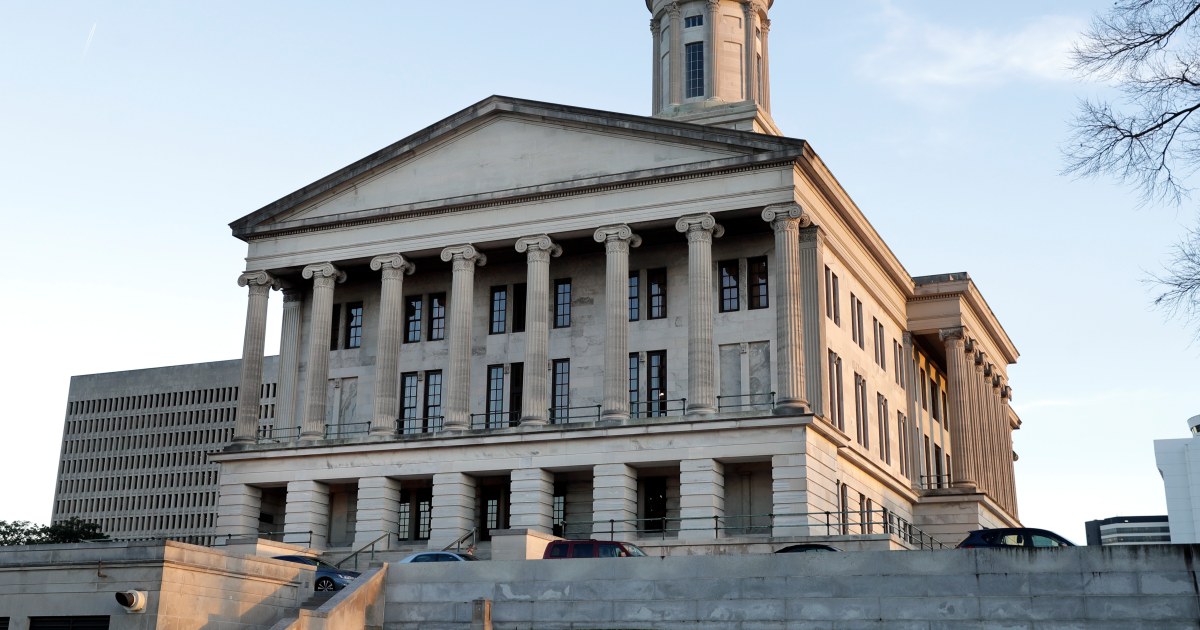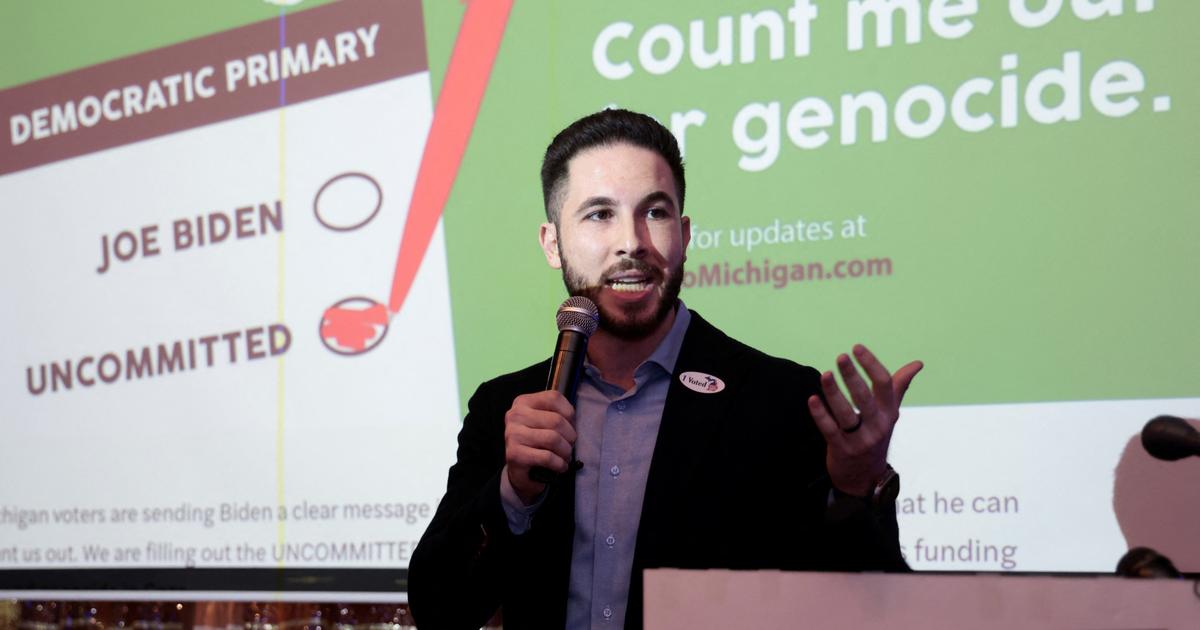Colombian women celebrate the decision of the Constitutional Court to approve the decriminalization of abortion until week 24.Carlos Ortega (EFE)
Colombia, Mexico, Argentina or Brazil.
The path of democratic progress in America has two speeds in which justice is gaining the upper hand over politics.
The latest sample is the decriminalization of abortion in Colombia until week 24, a historic ruling by the Constitutional Court issued on Monday.
In September something similar had happened in Mexico, where the Supreme Court of Justice of the Nation annulled the prison sentence with which the voluntary interruption of pregnancy was punished in some states of the country.
In both cases, the sentences expose the governments, of the opposite sign.
If that of Iván Duque opposes the measure without nuances, that of Andrés Manuel López Obrador had refused to legislate on the matter.
In Argentina, a pioneer country in the region in reproductive rights, the Supreme Court had, like the feminist tide, a determining role in the new legislation.
Brazil criminalized homophobia in 2019 thanks to the Supreme Court.
On the contrary, in the United States, where in recent decades the highest court has been decisive in consolidating social achievements, the right to abortion is once again in danger after former President Donald Trump changed the balance of the court granting a solid majority to conservative judges.
This trend reversal collides with that of some of the main countries of the continent.
Colombia
The rulings of the Constitutional Court of Colombia, with a recognized history of guarantees and avant-garde, are light years away from the immobility of Congress and the various governments that have led the country.
This high court has ruled in favor of euthanasia in non-terminal patients, homosexual marriage, prevented indefinite presidential re-election and abortion on all three grounds (rape, malformation of the fetus incompatible with life outside the womb and risk to physical health or mental health of the pregnant woman), among others.
It is to this court that women have had to go to insist again and again that their sexual and reproductive rights, protected by justice, should not be cancelled.
Since 2006, when it ruled in favor of abortion in all three cases, the Court has summoned Congress and the different Executives to legislate and land those sentences to protect the lives of women.
However, the barriers they have faced to access the right to abortion have revealed the lethargy, indifference or open rejection of these two powers.
“In more than 15 years, Congress has not been able to issue a rule regarding access to legal abortion in Colombia, since it has not regulated access and guarantee of the right to Voluntary Interruption of Pregnancy (IVE), despite the fact that the Constitutional Court on three occasions he has exhorted to do so, ”explained the Just Cause Movement.
And that despite the fact that 56 bills were presented in this matter, the group assures.
For this reason, in the historic ruling that decriminalized abortion in Colombia up to the 24th week of gestation, the high court once again called on the political class.
He emphasized that the Colombian Congress and Government must comply with the sentence "immediately" and implement the necessary legislative and administrative measures "in the shortest time possible."
The Executive of Iván Duque will not only have to disclose the options that women have to abort and eliminate any obstacle;
but also develop sexual education and prevention programs, accompany pregnant mothers with measures that include adoption options and also guarantee the rights "of those born in circumstances of pregnant women who wished to abort."
Mexico
The Supreme Court of Justice of the Nation ruled in September in favor of the right to abortion with a ruling that in practice annulled the prison sentences that were still applied in some States of Mexico, where only four of the 32 territories of the federation have with a law of deadlines.
The country's highest judicial body established that "any woman who aborts in the cases considered by this court" could no longer be prosecuted, explained its president, Arturo Zaldívar.
This magistrate has defended during his career sentences on same-sex marriage, bullying or the excesses of preventive detention.
Despite the good harmony with the project of President Andrés Manuel López Obrador, Zaldívar's resolutions are often one step ahead of the so-called Fourth Transformation discourse.
Mexican women owe the decriminalization of abortion to the high court and not to their political leaders.
It did not happen with the PRI, of course not with the right-wing PAN, and not even now with Morena, a movement that, by winning the elections in 2018, proclaimed an almost total break with the past.
But there were exceptions and the voluntary termination of pregnancy was one of them.
López Obrador avoided taking sides with the decision of the Supreme Court, although he assured that he would respect it.
His argument, the same one he used to not legislate on the matter, is that it is an issue that arouses mixed feelings.
He did not want, he said, to "provoke confrontation."
Another of the court's recent rulings opens the door to the recreational use of marijuana with a resolution that reverses the ban on planting, collecting, transporting and distributing this substance among private consumers while waiting for Congress to legislate on the matter.
Argentina
Argentina was a pioneer in the continent in decriminalizing abortion in some cases: the Penal Code of 1921 contemplated it in cases of risk to the life of the pregnant woman and in pregnancies resulting from the rape of "an idiotic or insane woman."
However, the law was systematically breached for decades and attempts by feminist groups to expand the assumptions collided again and again against Parliament's refusal.
With the legal route closed, women with unwanted pregnancies resorted to hiding.
The first big break occurred in 2012, when the Supreme Court determined, in what is known as the FAL case, that every raped woman could access the legal interruption of pregnancy without going through a judicial process and urged the provinces to approve protocols that would facilitate that practice.
Some complied and others did not, but after that ruling and with the emergence of the feminist tide in 2015, the pressure on the political class intensified.
In 2018, Parliament agreed for the first time to debate a bill to decriminalize abortion that was approved by the Chamber of Deputies, but rejected by the Senate.
Two years later, the initiative was discussed again in Congress and on December 30, 2020, it became law.
Brazil
In Brazil, too, the courts are ahead of governments and legislators when it comes to expanding social rights or punishing new forms of discrimination.
The most recent example is homophobia, which the Supreme Court criminalized in June 2019, six months after the ultra-conservative Jair Bolsonaro came to power.
It was the judges who in 2013 legalized homosexual marriage.
And in 2012 they extended the right to abortion by adding anencephaly (brainless fetus) to the two assumptions in force since 1940, rape and risk to the life of the mother.
The leftist Dilma Rousseff declared herself, in her first electoral campaign, personally against abortion and defended keeping the legislation in force at the time.
She kept her word.
None of the aforementioned initiatives would have gone ahead in Congress, where those related to the evangelical churches expand seats in each election.
Among parliamentarians there are more members of the Bible caucus (20%) than women (15%).
That the high courts have become the vanguard to recognize new rights is the new terrain of this battle in Brazil, as in the US.
Bolsonaro has kept his promise to appoint a "terribly evangelical" judge to the highest court, the first openly religious toga to go there.
Whoever wins the presidential elections next October will appoint the substitutes for two more of the eleven Supreme Court justices.
It is a long-term pulse, but crucial.
United States
The right to abortion in the United States is in danger half a century after being guaranteed under the Constitution.
Donald Trump managed to place three justices on the Supreme Court, giving conservatives a solid majority over progressives (six to three).
Between June and July, this new high court will rule on a Mississippi law that prohibits the termination of pregnancy after the fifteenth week of gestation, which conflicts with the constitutional right guaranteed by the 1973 Roe v. Wade judgment of to be able to abort until there is viability for the fetus, that is, "it is potentially capable of living outside the mother's womb, without artificial help", which normally happens around the 24th week of pregnancy.
If Roe v. Wade is overturned, there are 12 states with laws in place to immediately ban all abortions and prosecute those who help women perform them.
The offensive of the conservative territories to put restrictions on access to abortion is going through its most critical moment in recent decades.
Nearly 100 state laws restricting termination of pregnancy were enacted in 2021, more than in any year since Roe v. Wade was decided, according to estimates by the Guttmacher Institute, an international organization that advocates for reproductive freedom.
subscribe here
to the
newsletter
of EL PAÍS México and receive all the informative keys of the current affairs of this country

/cloudfront-eu-central-1.images.arcpublishing.com/prisa/QITWR7B2QVQFW5LTEQ4RPUTMQI.jpg)







